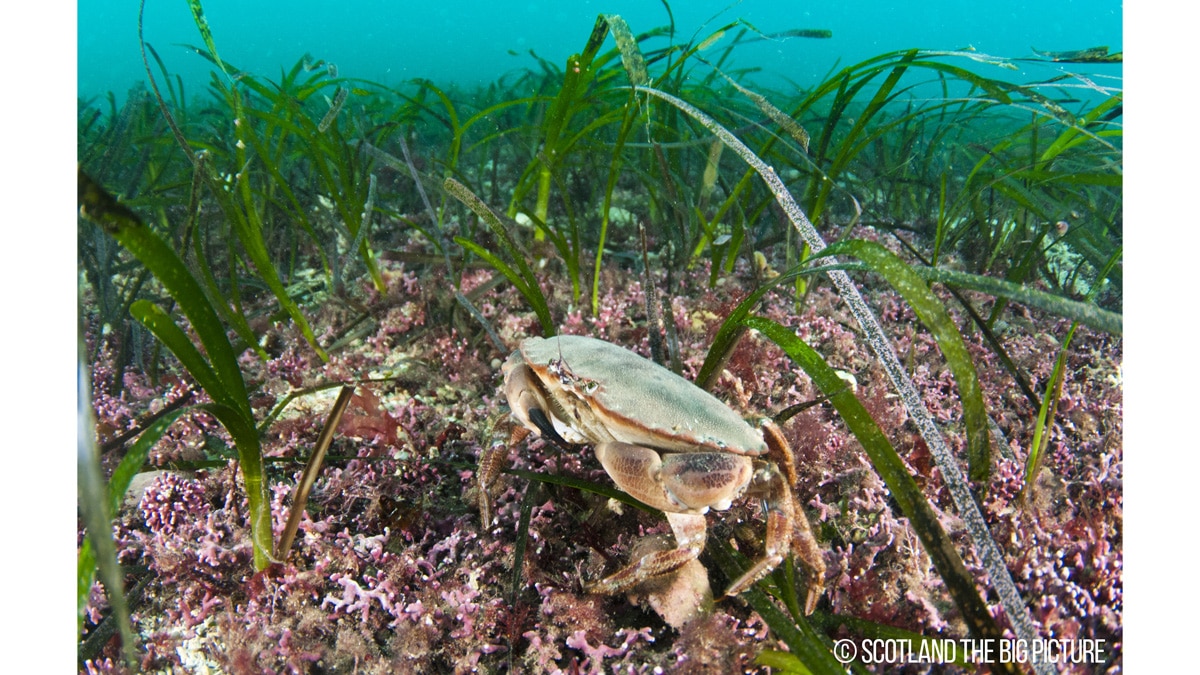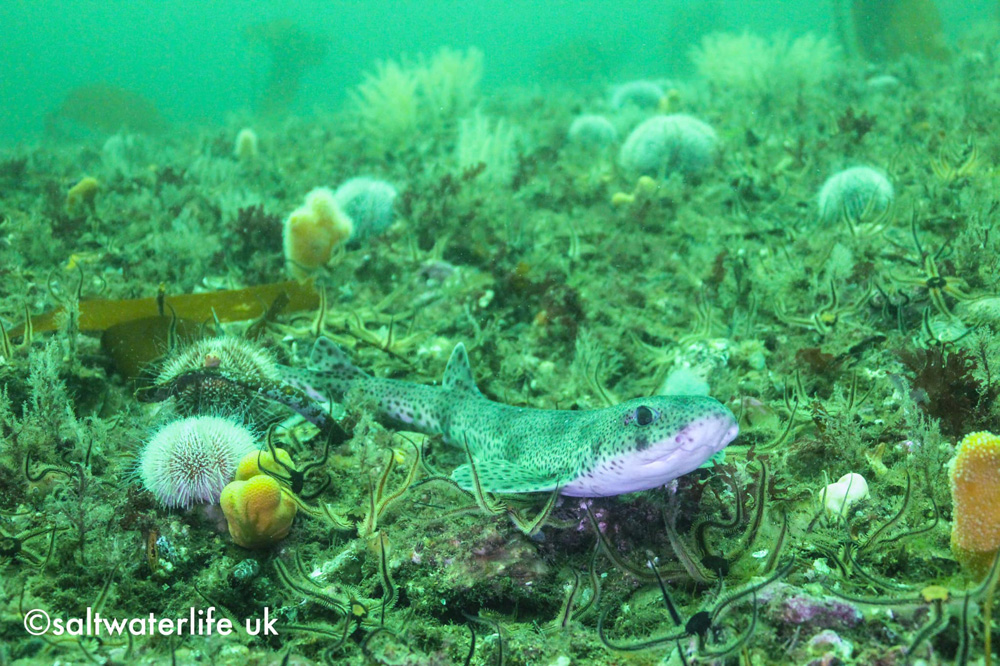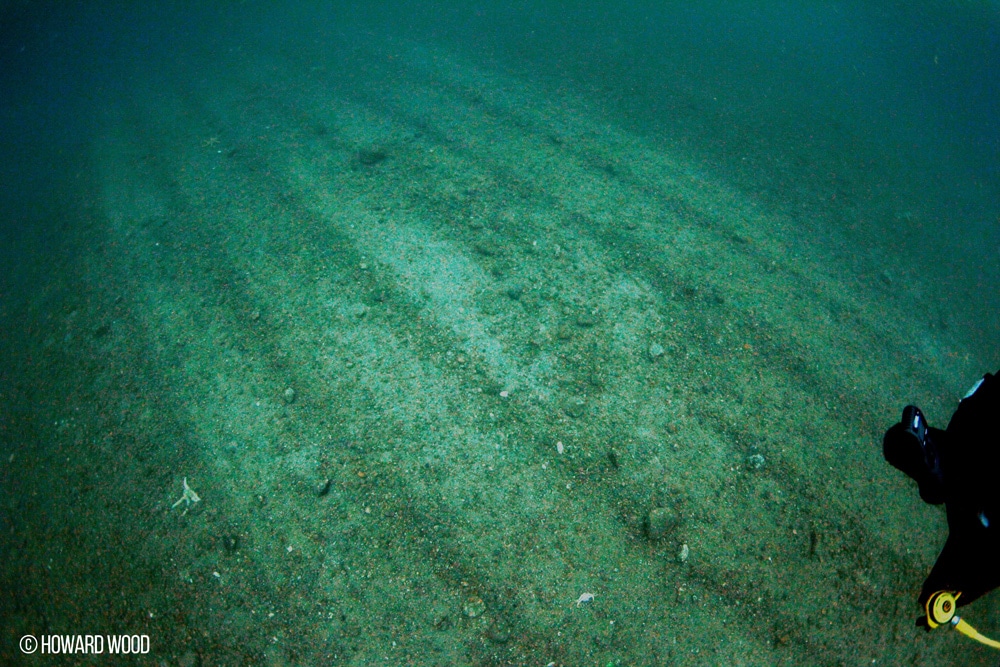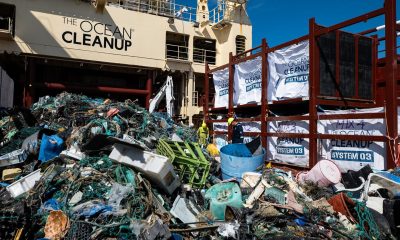Marine Life & Conservation
Habitat and fisheries decline sparks calls for coastal recovery

A new assessment reveals that carbon-rich seabed habitats are continuing to decline in the Highland and Islands region, prompting calls for urgent action by the Our Seas coalition.
According to the Scottish Marine Assessment 2020, many hectares of habitats around Scotland’s coasts have been lost in the last ten years alone. A campaign to recover the health of Scotland’s coastal seas has now gathered momentum with over 90 concerned organisations and local businesses calling on the Scottish Government to take urgent action to halt and reverse the damage being done to our inshore seabeds by bottom-towed fishing gear. The coalition supports the reinstatement of an inshore limit on bottom-trawling to recover the health of Scotland’s fish populations and safeguard sustainable fisheries.
The Our Seas coalition was established in response to decades of decline in Scotland’s inshore fisheries and in particular steep declines in the spawning stock of fish such as cod and whiting on the west coast, as a result of a century-long ban on bottom-trawling within three miles of the shore being removed in 1984. In less than a year, over 90 community groups, businesses and national organisations have joined the Our Seas coalition.
The members of Our Seas coalition argue that recovery of fish populations and habitats is impossible unless the causes of those declines are addressed by the Scottish Government and that the pressures of Brexit and the covid pandemic are laying bare long-standing problems in the health of Scotland’s fisheries. The coalition is now raising further public awareness and has launched a new documentary film ‘The Limit.’
Ailsa McLellan coordinator of Our Seas said: “We have accepted the chronic decline in our fisheries for too long; now we must address the causes.This is a hidden biodiversity crisis on our doorstep, some of the habitats being lost are significant carbon sinks, they must be protected and allowed to recover. There is overwhelming evidence that coastal nursery and spawning grounds are damaged by bottom towed fishing gear, and that this has directly contributed to a decline in marine life and the historical collapse of many fish populations. These declines are the fault of ineffective fisheries management, not the fishermen. Declines cannot be reversed until the Scottish Government reintroduces spatial management and incentivises a transition away from the use of intensive fishing gears close to shore”.
“Brexit and the pandemic have exposed the desperate situation for our coastal fisheries who currently have little chance to diversify. Many within the inshore fleet now rely on shellfish, when in the past they would have been able to catch a variety of fish species. Conservation need not be at the expense of jobs, there are examples at home and internationally of conservationists and fishermen working together to benefit both fisheries, communities and the environment.’’
The calls for coastal recovery, organised by the Our Seas coalition, has been further boosted by a judge’s ruling last month that the Scottish Ministers acted illegally in rejecting a proposed fisheries no-trawl pilot scheme off the coast of Skye. The pilot was designed to provide important evidence on the ecological and economic benefits of lower impact creel fishing when compared to bottom-trawl fishing.
In a case brought by the Scottish Creel Fishermen’s Federation (SCFF), High Court Judge Lady Poole said Ministers had not taken into account their own guidance and instructed them to “properly reconsider” the scheme. The SCFF had claimed Marine Scotland had listened only to opposition from the trawling industry. In the face of further ministerial resistance, Lady Poole this week said she would, if necessary, order them to take action.
Alistair Philp of SCFF, which took the case said “The evidence that this Pilot will provide will greatly add to our understanding of how restricting the use bottom-towed fishing gears can have very positive economic as well as environmental benefits and I would urge the Scottish Ministers to give it the go-ahead. This could provide a template for how to sustainably manage and revive our inshore fisheries.”
The ruling follows the publication in January of an economic report by SCFF which gives a detailed account of how an inshore limit on trawl activity could add another 450 creel boats and thousands of new high quality fishing jobs.
Our Seas is currently organising a public petition which can be signed on its website https://www.ourseas.scot
Blogs
The Ocean Cleanup Breaks 10,000,000 KG Barrier

The Ocean Cleanup, the global non-profit project, has removed a verified all-time total of ten million kilograms (22 million lbs.) of trash from oceans and rivers around the world – approximately the same weight as the Eiffel Tower.
To complete its mission of ridding the oceans of plastic, The Ocean Cleanup uses a dual strategy: cleaning up the Great Pacific Garbage Patch (GPGP) to remove the plastic already afloat in the oceans, while stopping the flow of plastic from the world’s most polluting rivers.
Through cleaning operations in the GPGP and in rivers in eight countries, the cumulative total of trash removed has now surpassed ten million kilograms. This milestone demonstrates the acceleration of The Ocean Cleanup’s impact, while underlining the astonishing scale of the plastic pollution problem and the need for continued support and action.
While encouraging for the mission, this milestone is only a staging point: millions more tons of plastic still pollute our oceans and The Ocean Cleanup intends to continue learning, improving and innovating to solve this global catastrophe.
This announcement comes as governments from around the world meet to continue negotiations to develop a new legally binding instrument to end plastic pollution at INC4 in Ottawa, Canada. Representatives of The Ocean Cleanup will be in attendance and the organization will be urging decision-makers to collaborate towards a comprehensive and ambitious global treaty which addresses plastic at all stages of its life cycle and in all marine environments worldwide, including in areas beyond national jurisdiction.
It is encouraging to see that the need for remediation is reflected in the various options for potential treaty provisions. It is essential that the final treaty contains clear targets for the remediation of legacy plastic pollution, and reduction of riverine plastic emissions.
Tackling plastic pollution requires innovative and impactful solutions. The treaty should therefore incentivize the innovation ecosystem by fostering innovations that make maximal use of data, technology and scientific knowledge – such as those designed and deployed by The Ocean Cleanup.
‘After many tough years of trial and error, it’s amazing to see our work is starting to pay off – and I am proud of the team who has brought us to this point.’ said Boyan Slat, Founder and CEO of The Ocean Cleanup. ‘While we still have a long way to go, our recent successes fill us with renewed confidence that the oceans can be cleaned.’
The Ocean Cleanup was founded in 2013 and captured its first plastic in 2019, with the first confirmed catch in the GPGP coming soon after the deployment of Interceptor 001 in Jakarta, Indonesia. After surpassing one million kilograms of trash removed in early 2022, the non-profit project has since progressed to the third iteration of its GPGP cleaning solution, known as System 03, and a network of Interceptors currently covering rivers in eight countries, with more deployments set for 2024.
About The Ocean Cleanup
The Ocean Cleanup is an international non-profit organization that develops and scales technologies to rid the world’s oceans of plastic. They aim to achieve this goal through a dual strategy: stemming the inflow via rivers and cleaning up the legacy plastic that has already accumulated in the ocean. For the latter, The Ocean Cleanup develops large-scale systems to efficiently concentrate the plastic for periodic removal. This plastic is tracked and traced through DNV’s chain of custody model to certify claims of origin when recycling it into new products. To curb the tide via rivers, The Ocean Cleanup has developed Interceptor™ solutions to halt and extract riverine plastic before it reaches the ocean. Founded in 2013 by Boyan Slat, The Ocean Cleanup now employs a broadly multi-disciplined team of approximately 140. The foundation is headquartered in Rotterdam, the Netherlands.
For more information, visit: theoceancleanup.com and follow @theoceancleanup on social media.
Marine Life & Conservation
Steve Backshall to headline Shark Trust’s flagship event: For the Love of Sharks

Join a host of amazing, shark loving, speakers including Steve Backshall and the Shark Trust team for an evening celebrating shark conservation at the Royal Geographical Society in London this November.
Date: 29th November 2024
Time: 6-10pm
Location: Royal Geographical Society, London
Tickets: https://www.sharktrust.org/Event/flos24
The event will be a celebration of all things shark. Those lucky enough to get hold of tickets will hear from engaging guest speakers with a passion for sharks.
The line-up includes (*subject to change if unforeseen circumstances arise)
Steve Backshall: One of television’s busiest presenters, BAFTA award-winning wildlife expert Steve has been passionate about the wild world ever since he was young.
Steve’s impressive TV career has taken him all around the world, investigating a wide array of species and environments. Steve has filmed over 100 hours of children’s wildlife programmes with the BAFTA award winning Deadly 60 franchise and recently, with Sky Nature, for his new series ‘Whale with Steve Backshall’. He has been a patron for the Shark Trust for 10 years.
Simon Rogerson: is a photojournalist specialising in natural history, diving and the sea.
He is editor of SCUBA magazine, the official journal of the British Sub-Aqua Club. Simon started his career as a crime reporter but gravitated towards his ‘less depressing’ interest in underwater exploration, joining the staff of DIVE magazine in 1999. In 2005 he was named ‘Editor of the Year’ in the PPA’s Independent Publishing Awards. Simon also works as a freelance writer, contributing frequently to the Sunday Times and Telegraph, in addition to BBC Wildlife, Esquire, and a host of international diving magazines. He is the author of a book, Dive Red Sea, published by Ultimate Sports. Now based in Berkshire, Simon has been a Patron of the Shark Trust for 20 years.
More speakers to be announced soon. Head to the Shark Trust website to learn more.
The evening will also allow guests the final chance to see the Oceanic 31, shark art exhibition. Some of the artwork will be auctioned/raffled at the event, while the rest will be auctioned online to raise money for the Shark Trust Oceanic Programme.
For the Love of Sharks is an evening with something for everyone who is interested and fascinated by sharks. Join the Shark Trust, their Patrons, Trustees and Staff, along with a host of supporters for this celebration of shark conservation.
For more information or to buy a ticket: https://www.sharktrust.org/Event/flos24
-

 News3 months ago
News3 months agoCapturing Critters in Lembeh Underwater Photography Workshop 2024: Event Roundup
-

 Marine Life & Conservation Blogs3 months ago
Marine Life & Conservation Blogs3 months agoCreature Feature: Swell Sharks
-

 Blogs2 months ago
Blogs2 months agoMurex Resorts: Passport to Paradise!
-

 Blogs2 months ago
Blogs2 months agoDiver Discovering Whale Skeletons Beneath Ice Judged World’s Best Underwater Photograph
-

 Gear Reviews3 weeks ago
Gear Reviews3 weeks agoGEAR REVIEW – Revolutionising Diving Comfort: The Sharkskin T2 Chillproof Suit
-

 Gear Reviews3 months ago
Gear Reviews3 months agoGear Review: Oceanic+ Dive Housing for iPhone
-

 Marine Life & Conservation2 months ago
Marine Life & Conservation2 months agoSave the Manatee Club launches brand new webcams at Silver Springs State Park, Florida
-

 News2 months ago
News2 months agoPADI Teams Up with Wellness Brand Neuro to Drive Ocean Change and Create a Blue State of Mind



















